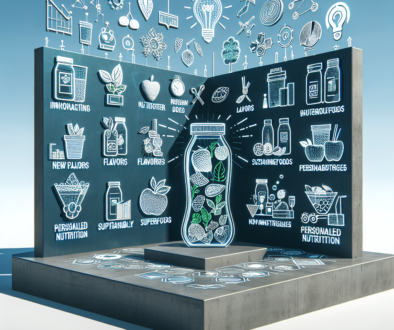Changes Of Cardiac Function Of High Fat Diet-Induced Insulin Resistance Rat And Telmisartan Intervention
Keywords
Insulin Resistance,Cardiac Diastolic Function,Collagen,Remodeling,Telmisartan
Abstract
Abstract: Objective To explore the changes in cardiac function and myocardial type I collagen induced by high-fat diet in insulin-resistant rats and the effects of telmisartan intervention on them. Methods 27 Wistar rats were randomly divided into normal control group (n=9) and high-fat diet group (n=18). After 12 weeks of high-fat diet intervention, the insulin resistance model was established. The rats in the high-fat diet group were randomly divided into a high-fat group (n=9) and a telmisartan group (n=9). After 34 weeks of dietary intervention, carotid artery intubation was performed to measure left ventricular end-diastolic pressure (LVEDP), left ventricular systolic pressure (LVSP), maximum rate of increase in left ventricular pressure (+dP/dtmax) and maximum rate of decrease in left ventricular pressure (-dP /dtmax). The ELISA method was used to detect the levels of myocardial type I collagen metabolism markers type I procollagen terminal propeptide sequence (PICP) and type I collagen pyridine cross-linked terminal peptide (ICTP) in plasma. Masson staining of myocardial tissue was used for quantitative analysis of myocardial interstitial collagen. Results Compared with the normal control group, the left ventricular end-diastolic pressure of rats in the high-fat group increased, -dP/dtmax decreased (P<0.01), the plasma PICP content and PICP/ICTP increased (P<0.01), and the left ventricular myocardial collagen volume The score increased (P<0.01). Compared with the rats in the high-fat group, the left ventricular systolic pressure and left ventricular end-diastolic pressure of the rats in the telmisartan group decreased (P<0.01), and -dP/dtmax increased (P<0.05); plasma PICP content, PICP/ ICTP decreased (P<0.05). The collagen volume fraction of left ventricular myocardium decreased (P<0.01). The collagen content of left ventricular myocardial tissue was positively correlated with insulin resistance index (P<0.01) and negatively correlated with -dp/dtmax (P<0.01). Conclusion Insulin resistance can promote myocardial type I collagen synthesis and increase myocardial collagen deposition, leading to decreased cardiac diastolic function. Telmisartan can improve insulin resistance and reduce myocardial collagen deposition, thereby improving cardiac diastolic function. ABSTRACT: Objective To explore cardiac function and myocardial collagen type I in diet-induced insulin-resistant rats and the effect of telmisartan on cardiac diastolic function in diet-induced insulin-resistant rats. Methods We randomized 27 Wistar rats into control group (n= 9), high-fat group (n=9), and telmisartan treatment group (n=9). At the end of the study, left ventricular end diastolic pressure (LVEDP) and left ventricular systolic pressure (LVSP) of the rats and ¡Àdp/dt were detected by carotid artery intubation. Masson cardiac staining was used to observe cardiac fibrosis, and collagen volume fraction (CVF) was measured. ELISA method was used to detect the concentration of plasma PICP and ICTP. Results Compared with the control group, in high-fat group LVEDP was significantly higher and -dP/dtmax decreased significantly (P<0.01); the plasma PICP level and the ratio of PICP/ICTP were significantly increased (P<0.01), cardiac collagen volume fraction was significantly higher (P<0.01). After 22 weeks' telmisartan intervention, compared with the high-fat group, LVEDP and LVSP were significantly decreased (P<0.01), but -dP/dtmax significantly increased (P<0.05). The level of the plasma PICP and PICP/ICTP were significantly decreased (P<0.05); left ventricular myocardial tissue collagen volume fraction content was decreased (P<0.01). The correlation analysis showed that cardiac collagen volume fraction in insulin-resistant group was positively correlated with insulin resistance index but negatively correlated with -dp/dtmax (P<0.01). Conclusion Insulin resistance promoted the synthesis of myocardial type I collagen, leading to increased myocardial collagen deposition and decreased cardiac diastolic function. Telmisartan may improve diastolic function partly by improving insulin resistance and reducing the deposition of myocardial collagen type I For further information of this article and research, feel free to contact our team for asssitance. Original research was done by Jin, Xin, Cheng, Si, Song, Yan, Wang Yaping, Tian Gang
About ETChem
ETChem, a reputable Chinese Collagen factory manufacturer and supplier, is renowned for producing, stocking, exporting, and delivering the highest quality collagens. They include marine collagen, fish collagen, bovine collagen, chicken collagen, type I collagen, type II collagen and type III collagen etc. Their offerings, characterized by a neutral taste, and instant solubility attributes, cater to a diverse range of industries. They serve nutraceutical, pharmaceutical, cosmeceutical, veterinary, as well as food and beverage finished product distributors, traders, and manufacturers across Europe, USA, Canada, Australia, Thailand, Japan, Korea, Brazil, and Chile, among others.
ETChem specialization includes exporting and delivering tailor-made collagen powder and finished collagen nutritional supplements. Their extensive product range covers sectors like Food and Beverage, Sports Nutrition, Weight Management, Dietary Supplements, Health and Wellness Products, ensuring comprehensive solutions to meet all your protein needs.
As a trusted company by leading global food and beverage brands and Fortune 500 companies, ETChem reinforces China’s reputation in the global arena. For more information or to sample their products, please contact them and email karen(at)et-chem.com today.



